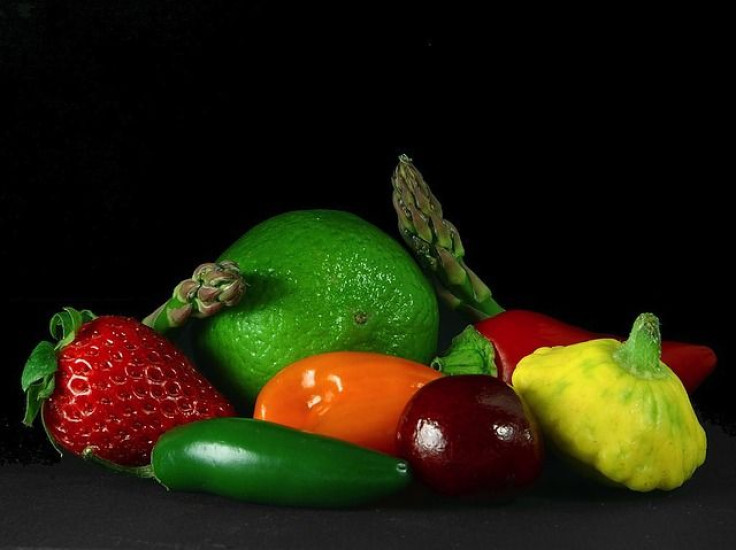'Dirty Dozen' Top 12 Fruits And Vegetables With Pesticide Exposure

Although most nutritional experts advocate the healthy advantages of fruits and vegetables, despite pesticide exposure, that doesn't mean you shouldn't know what food options may have the highest levels of contamination.
The health advocacy organization, Environmental Working Group, released its annual Dirty Dozen list of the top pesticide-riddled produce. Similar to years past, apple ranks number one among the fruits and vegetables containing the most pesticide with around 48 different types.
"By following EWG's Shopper's Guide and advice, consumers can feel confident they can buy foods with consistently lower overall levels of pesticide contamination," said Sonya Lunder, an EWG senior analyst.
Pesticides on fruits or vegetables are intentionally used to eradicate small insects. Unfortunately what's deadly for the insects can be potentially harmful to humans.
The Environmental Protection Agency gives a detailed guide to pesticide exposure and how to properly asses the associated risk. In it the EPA states the unhealthy side effects of too many pesticides may depend on the type of pesticide.
Pesticides that attack the nervous system are known as organophosphates or carbamates. Other pesticides have been known to be carcinogenic, or cancer causing. A list of commonly known pesticides and their side effects is featured on the EPA's website.
The entire Dirty Dozen list included:
1. Apples- Most health practitioners say your best apple option in organic.
2. Strawberries- Since fungi is especially prone to strawberries they are constantly sprayed with pesticides.
3. Grapes- Pesticide residue on grapes is still present when they are made into wine.
4. Celery- Past EWG analyses have detected over 60 different pesticides on non-organic celery.
5. Peaches- In past years peaches have ranked number one given that their unique skin is a pesticide magnet.
6. Spinach- Top pesticide-contaminated lettuce product.
7. Sweet Bell Peppers- All colors of bell peppers, including yellow, orange and red, contain the same amount of pesticide content.
8. Imported Nectarines-Nectarines from outside the US record higher toxicity levels than domestic grown.
9. Cucumbers- When peeling the skin of a cucumber, make sure it's completely naked or pesticides will remain.
10. Potatoes- Potatoes are sprayed with pesticides from the moment their seeds are planted to the moment they are picked from the ground.
11. Cherry Tomatoes- Removing the bottom leaves of a tomato plant has been suggested considering that's where fungus starts to grow.
12. Hot Peppers- The skin of hot peppers are teeming with bacteria; however, hot pepper extract has been known to make a quality insecticide itself.
"When given a choice, more consumers are choosing organic fruits and vegetables or using EWG's Shopper's Guide to find an easy affordable way to avoid toxic chemicals," said Lunder.
"They want to eat a diet rich in fruits and vegetables without eating too many pesticides. And they want to support local farms and agriculture that is better for the environment."



























